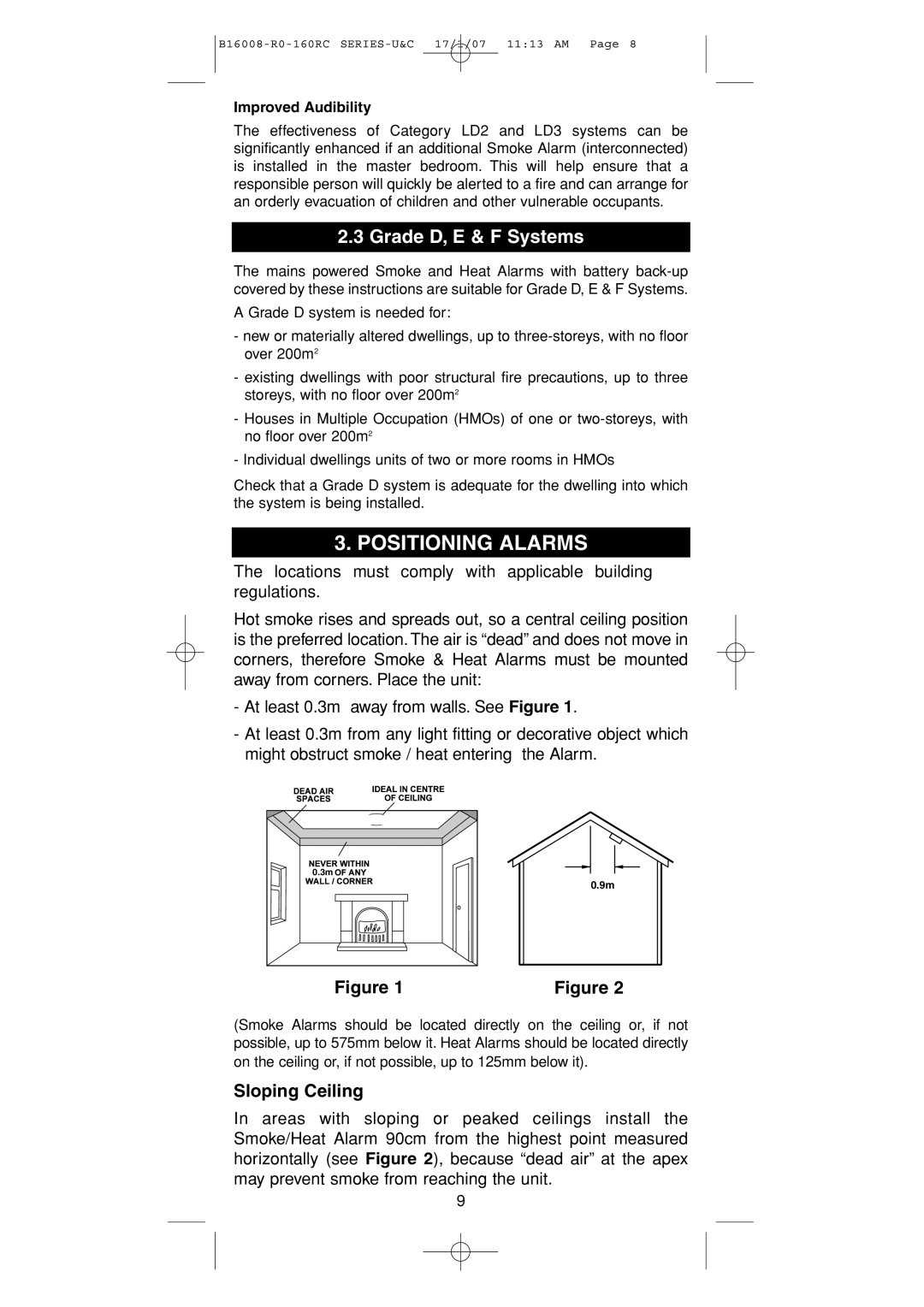Ei168RC, Ei164RC, Ei166RC, Ei161RC specifications
The Aico Ei161RC, Ei166RC, Ei164RC, and Ei168RC are a series of advanced smoke and heat alarms designed to ensure maximum safety within residential and commercial properties. These devices are equipped with innovative technologies that enhance their efficiency and reliability, making them essential components of any fire safety plan.The Ei161RC is a versatile optical smoke alarm. It employs a highly sensitive optical sensor that effectively detects slow-burning fires, such as those caused by smoldering materials. One of its standout features is the built-in Rechargeable Lithium Cell, which offers a prolonged lifespan and ensures that the alarm remains powered even during power outages. Additionally, the Ei161RC is equipped with a test button that allows users to easily verify the functionality of the alarm.
The Ei166RC goes a step further by integrating a heat sensor alongside its smoke detection capabilities. This dual-functionality is ideal for areas where smoke may be a common occurrence, such as kitchens, as it reduces the likelihood of false alarms triggered by cooking fumes. Like the Ei161RC, the Ei166RC also features a rechargeable lithium cell, making it both efficient and environmentally friendly.
Next is the Ei164RC, which is specifically designed for residential homes and commercial settings that require the highest level of safety from carbon monoxide. This alarm combines smoke detection and carbon monoxide sensing in one unit. Its advanced sensing technology ensures rapid detection of both smoke and harmful gases, ensuring comprehensive safety. The Ei164RC has a user-friendly interface, allowing quick access to essential features.
Lastly, the Ei168RC is tailored for those who prioritize intelligent safety solutions. This alarm not only detects smoke and heat but can also integrate with other alarms in the Aico range, creating a comprehensive safety network throughout a property. Its smart interconnected technology ensures that when one alarm is triggered, all alarms in the system sound simultaneously, providing an immediate alert to occupants.
All four models in this series are designed with ease of installation in mind, featuring a compact, modern design that complements any interior. They are engineered to function reliably with a long lifespan and minimal maintenance requirements. With their intelligent features, advanced technologies, and reliable performance, the Aico Ei161RC, Ei166RC, Ei164RC, and Ei168RC alarms set a high standard for fire safety. Whether for residential use or commercial applications, these alarms provide peace of mind and active protection against fire hazards.

